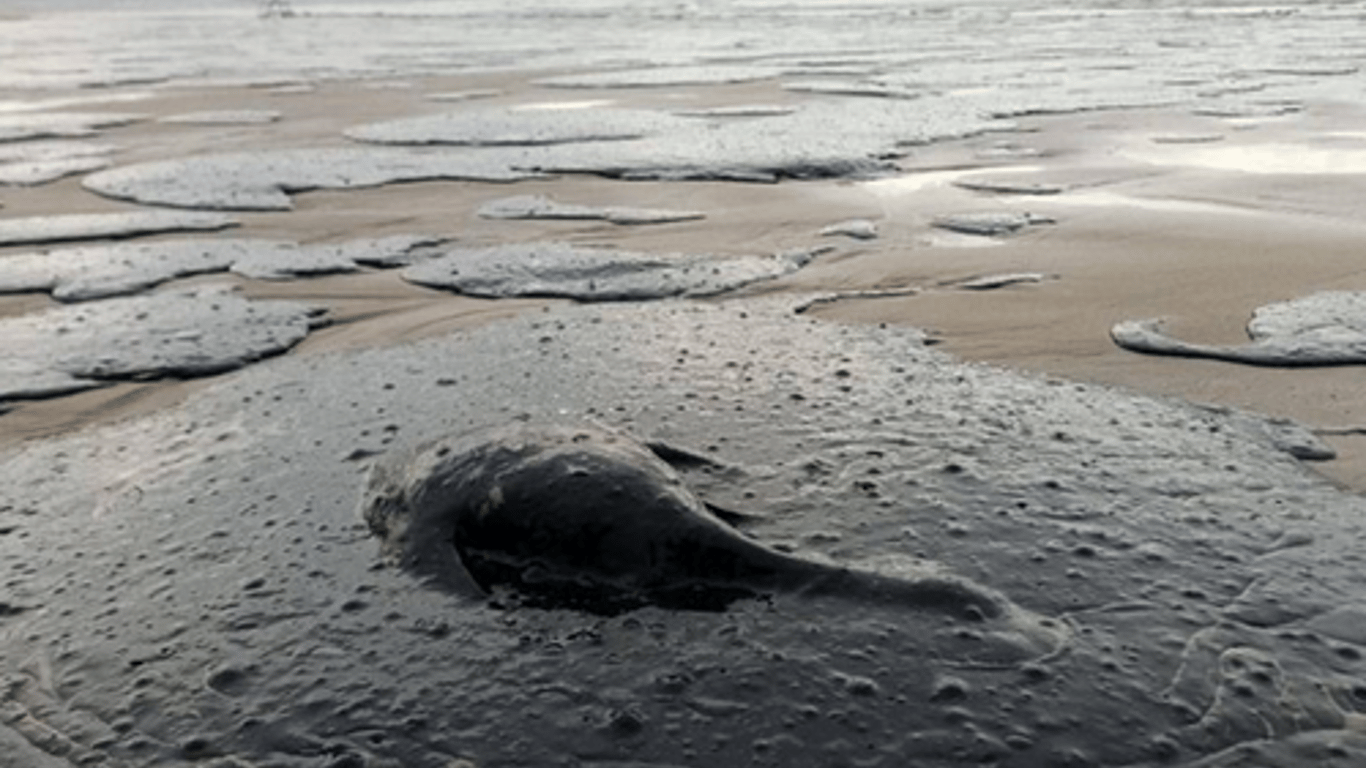Dangerous Russian fuel oil in Odesa region - ecologists sound the alarm.


Fuel oil in Odesa region
Fuel oil from the tankers 'Volgoneft-239' and 'Volgoneft-212' has traveled over 650 kilometers and reached the northwestern shelf of Ukraine. The spread of the pollution was facilitated by cyclonic circulation in the Black Sea.
Analysis revealed that the samples found are heavy degraded fractions of fuel oil, typical for prolonged stay in water. Some clumps contained impurities of algae and sand, while others were dense homogeneous formations with a glossy surface. Moreover, medical masks were found, which were used during the cleanup of pollution in the Anapa region.
What ecologists propose
According to representatives of the NGO 'Green Leaf', the Ministry of Environmental Protection of Ukraine continues to rely on an outdated model of pollution spread. This model does not take into account the sedimentation of heavy fractions on the bottom and their subsequent movement.
'This model exclusively considers the surface spread of spots. It does not take into account: the sedimentation of fuel oil on the bottom, the formation of pseudosediments, the transport of dense aggregates by currents. The ministry's model fundamentally does not assume that fuel oil from Kerch could have reached the shores of the NPP 'Tuzlovski Lymany' - and this has become a convenient excuse to do nothing. In reality, these heavy fractions are the most toxic to the ecosystem.'- the message from eco-activists states.
Ecologists called on the authorities to reconsider their approach to responding to marine disasters, to create an effective monitoring system, and not to ignore the data of specialists.
Disaster in the Black Sea
On December 15, Russian tankers 'Volgoneft-239' and 'Volgoneft-212' sank in the Kerch Strait. As a result, over 4,000 tons of fuel oil spilled into the Black Sea. The preliminary damage from the spill of petroleum products after the accidents is estimated at 14 billion dollars.
Recall that recently we wrote about how the Russian Federation is destroying the nature of Crimea, as well as about the fact that a factory will be built on the peninsula using Chinese equipment.
During water analysis in the National Natural Park 'Tuzlovski Lymany', fuel oil pollution from the sunken Russian tankers was found, creating a serious threat to the marine environment and requiring comprehensive measures for the elimination of consequences. The spill of fuel oil from the tankers in the Black Sea underscored the need to strengthen measures for prevention and monitoring of similar disasters in marine waters.Read also
- Power Outage Schedules in Odesa - What Are the Predictions for Tomorrow
- A Ukrainian woman died while on vacation in Albania - details from the Ministry of Foreign Affairs
- A powerful explosion rang out in Odesa region - what is known
- 1% Cleared - How Much Time is Needed for Full De-mining of Kharkiv Region
- At the post office, money was taken from pensioners - a scheme uncovered in Odesa region
- Travel to Moldova is currently not possible — situation on the Odessa-Reni road








